How often do we hear the phrases 'innovative product', 'new level of convenience', 'never before seen opportunities'. Or, on the contrary, 'theft of someone else's intellectual property', 'dastardly copying', 'complete secondary'. But what is hidden behind these loud words? In what units can the usability and innovation of a device be measured? How can you not only compare a crow and a desk, but also identify a clear winner among them? And how to figure out where the patent for the black rectangle ends and the patent for the dark square begins?

The funny thing is that in practice all this is practically unimportant. It does not matter what this or that phenomenon or product is. What matters is what people think of him. I don't know, maybe such a thing as truth really existed at one time or another. But to this day, she certainly did not live, and her place has long and firmly taken the concept of 'public opinion'. If most people find a product convenient, then it is convenient. If the majority of buyers find a device beautiful, then it is beautiful. The opinion of experts has long been of no interest to anyone, all their beautiful theories affect sales a little more than the Mayan calendar – on the date of the end of the world. Even if a certain world-famous designer convincingly proves that the appearance iPhone violates all existing rules and definitely does not fall under the modern canons of beauty – what will change from this?
The attitude of users to a particular brand or a particular device is formed from a bunch of different things, where the opinion of experts is far from the main thing. Of course, reviews on specialized sites and reviews of 'geeks' on thematic forums also affect the overall mood. But not at all as much as people think. Current fashion, the advice of a sales assistant, or the opinion of a colleague who just recently watched an ad with a famous actor, often turns out to be a much more powerful argument.
Most people are not overly interested in the price-performance ratio, specifications or capabilities of the device. And even the size, design and materials used are not critical. The fact that Galaxy S is a 'plastic remnant', and iPhone 6 is a real 'shovel', any Internet fighter from any specialized forum will tell you, but to real buyers who are buying up these devices in millions all over the world, nothing cares about all these witticisms.
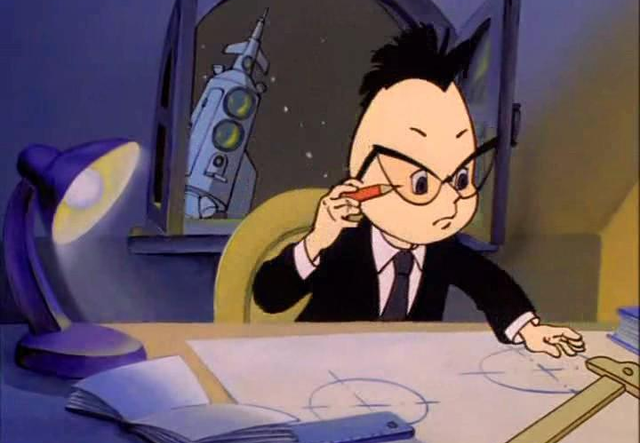
All the technical details are not very interesting for the bulk of buyers, and in fact, they will be satisfied with any solution available in the store. But only until someone from their entourage points out the mistake. To feel like an honorary owner of second-fresh sturgeon and to know that for this money it was possible to buy something 'better', for many it is simply unbearable. Right there, the purchased device, which has just completely satisfied everyone, has a number of fatal flaws. It is not beautiful enough, with a grainy screen, lags and freezes a lot, does not have that most-important-in-the-world-function that is on a neighbor's smartphone, and so on. It is no coincidence that most people prefer to buy 'proven' things that are used by everyone around them, no matter how much the familiar 'geek' assures that there are much better solutions. This is a kind of guarantee against mental anguish, a way to guarantee not to hit the face in the dirt and not get into a mess. It turns out a kind of snowball – the newly-made owner of the popular device immediately begins to sing along with joy to the discordant chorus of admirers of the chosen brand. Which, in turn, makes new consumers pay attention to it.
A separate category is made up of fans of a particular brand. They, too, do not always understand the characteristics and capabilities of devices, and in general, they are often far from technology. But they always know exactly which device is the most convenient, innovative, progressive and correct.
Surprisingly, not every professional will dare to answer a provocative question about which is better, Android or iOS, Canon or Nikon, nVidia or Ati. At a minimum, it will clarify which model is being discussed, by whom and for what purposes it is purchased, etc. But most amateurs will answer right there, and without a shadow of a doubt. And he will bring such a number of reinforced concrete arguments and murderous arguments that no professional has ever dreamed of. And is it worth saying that a clear and clear answer will inspire much more confidence in most people than a long lecture with many 'but', 'probably' and 'not in all cases' that a professional will read to him?
Not wanting to thoroughly understand the issue, people usually remember several random facts, on the basis of which they draw all further conclusions. If, for some reason, a person has decided that company X produces the most convenient, innovative and high-quality devices, then nothing can convince him. He will consider any new information only from a once chosen angle, considering all the functions missing in the X product are 'unnecessary', other screen sizes 'incorrect' and all the successful finds of competitors 'despicably copied'. But if one day he is truly amazed by some decision of a competing company, then a new smartphone may well be chosen as a 'starting point'. And now the once beloved phone X at once becomes morally obsolete, the manufacturing company falls into the 'not cake' category, and OS Y is declared the most user-friendly system.
Presentation Microsoft
Windows Phone (which has recently become just Windows) doesn't have that many fans. But they (like, in principle, any other fans) are ready to prove the superiority of their favorite OS over all solutions existing on the market. Even if Microsoft held a presentation in Chinese and talked about the political situation in South Africa for three hours in a row, it would be taken by fans as proof of the success of the upcoming OS.
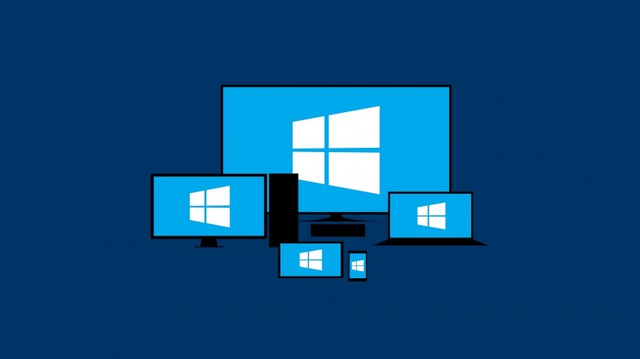
At the same time, the majority of the rest of the audience was deliberately critical of any statements Microsoft, automatically attributing most of the loud statements to empty marketing. This stems from the rather controversial 'desktop' Windows 8, and the unsuccessful WP, which the company has not been able to bring to life for many years. Besides, it is always easier and more pleasant to criticize than to praise. To do this, you do not even need to understand the subject of the conversation – it is enough just to say with a clever air 'will not take off'. And let the opponent, confused in abstruse terms, prove the opposite.
The goal of any such presentation is to lure as many potential users as possible to your camp. That is why any real presentation is not just a dry listing of the technical characteristics of a novelty, but a small show designed to impress the viewer.
In my subjective opinion, Microsoft once again made the same mistake, spending a lot of the available time to convince viewers of how great the company is doing and what exciting prospects it has. How much the company's products are in demand, how do users around the world love them, and so on. In fact, users do not care about the company's financial success, the prevalence of its products, or anything else. All this is an internal kitchen, which should be of concern to the employees themselves Microsoft. Maybe loyal fans all these data warm the soul, but only they already sold it Microsoft with all the giblets, and it was not them who needed to impress.
The second point is the controversial placement of accents. After all, although the message of any presentation is always the same (choose us, we are the best!), You can convey it to the audience in different ways. While many other companies try to talk about the needs and desires of the users themselves, Microsoft talked more about themselves and their products. As if not realizing that 'Microsoft Office' is not a magic spell, thanks to which customers will line up for phones at Windows. And the new Internet Explorer, which has adopted the alias Spartan, is not something for which people will update to Windows 10. I don’t want to say that this new IE is in any way bad. But let's be honest – this browser is used primarily by those who do not care which browser to use at all. So was it worth the emphasis?
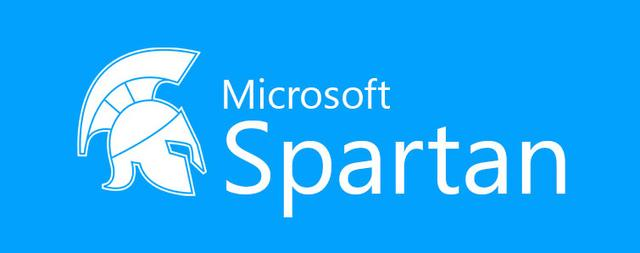
Emotions are much more important to people than bare technical characteristics. If they can be convinced that the product will open up new prospects for them, give them vivid emotions and help them achieve success, they will forgive him for any technical shortcomings. How many years they forgave them to the same iPhone, which at first could even be called a smartphone with a fair amount of stretch.
Instead of stories about 'universal applications' that are equally suitable for any devices that we have heard from the company for years, it would be worth showing some really unusual and interesting cellular 'chips' for users that can cause a 'wow effect'. Apparently, according to Microsoft, this role should have been played by Cortana, but only since the announcement of Siri, such voice assistants have long become the norm and have ceased to cause any special delight.
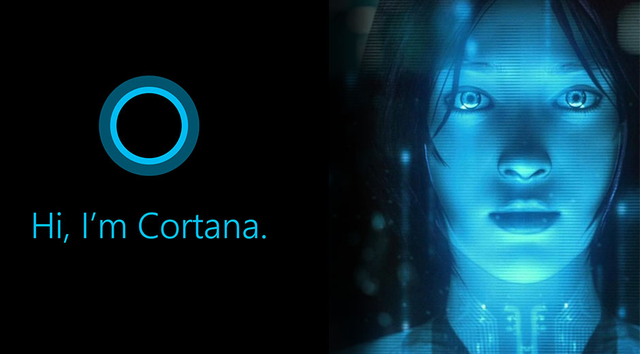
And instead of talking about the benefits of the 'tiles' that have not become popular, present a truly new interface for the mobile version of the OS. Is it risky? Maybe. But tiles don't have a bright future on smartphones anyway. You can argue to the point of hoarseness whether the interface is 'correct' or 'wrong'. But the fact is that such mobile devices have not been sold normally for many years, and what will Windows 10 bring with it to radically change this situation?
Of course, there were some nice words about the benefits of augmented reality, HoloLens glasses and other traditional things.
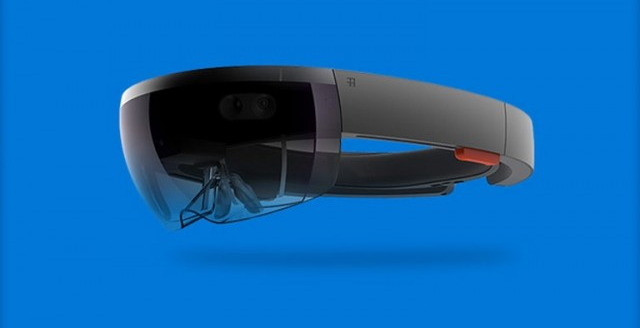
I doubt that all these conversations are of great interest to the average user today. It's like a flight to Mars – in theory, it's an interesting thing, but it's infinitely distant from you and me. And it has nothing to do with the choice of technology. If someone is really interested in this question, then he probably knows very well about dozens of similar projects of a bunch of other companies, among which there are enough big names.
[iframe url = '// www.youtube.com/embed/Hk-GBvfhc-0 ″ width =' 640 ″ height = '360 ″ scrolling =' no 'frameborder =' 0 ″ marginheight = '0']
Another announcement that, in theory, should have impressed users – a unique technology for charging mobile devices. It is called Microsoft AutoCharge and will soon allow you to charge your smartphone without any action on the part of the user. The system will automatically find the smartphone left on the table and charge it using a special type of light.
Link to news
Perhaps the organizers of the presentation considered it a kind of icing on the cake, which will finally convince the audience of its technical superiority Microsoft. In practice, another shot was missed. The average consumer is not interested in the technology itself. He wants to understand how and why it will be useful to him in real life. And instead of another innovative charging, with which you can charge a smartphone during the day, he would prefer to hear that new smartphones will work quietly for 1-2 days and will not require any daily recharging at all. Even if in practice this is not entirely true, any existing smartphone can be easily discharged to zero in a matter of hours. For example, the same iPhone also cannot boast of a record battery life, but many ordinary buyers are still sure that it holds a charge perfectly, while smartphones with Android are gluttonous like a crocodile fasting for a week.
As a result, instead of talking to a potential buyer in his language, showing and telling some interesting things to him, the company tried once again to play the role of a leading global corporation, which is at the forefront of technological progress and by default provides its users with the most advanced and innovative solutions. So progressive and cool that an ordinary person does not even realize all this coolness. But the company looks like a second-rate actor playing the role of Napoleon. It seems that the suit is suitable, and the text reads without hesitation, but only too many small details that look unnatural and give him away. For example, the recent good news that the DropBox client, after many years of waiting, is still available for WP devices, somehow does not fit well with the chosen image.
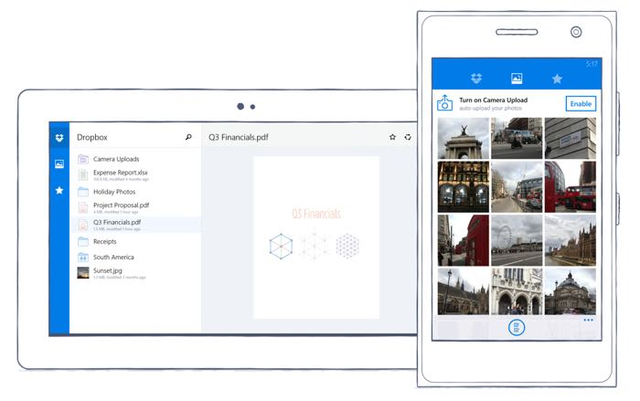
Link to news
In my opinion, in Microsoft they could not tell or show something that would really 'hook' viewers, made them wait with bated breath for sales of devices on the new OS and figure out in advance who and for how much now you can 'drive' your own iPhone. It turned out such a nice get-together, a party with his own people. Those who use the company's products will continue to use them in the future. And, most likely, they will update the 'desktop' Windows to the tenth version – why not, if it's free? It's just that in the PC market Windows, and so little threatened, things are much worse on the mobile front. And those who do not see the point for themselves in devices on Windows after the last presentation are unlikely to change their point of view. Mobile devices Microsoft have not been able to fall into the fashion category for several years now, and the company has not yet been able to figure out where to approach this issue from.
News Apple
The company Apple demonstrates a completely different approach. Its devices are always remembered at first sight, and despite many technical flaws, they never cease to amaze. The company succeeded in making iPhone something more in the eyes of users than a beautiful case and a set of technical characteristics. In a sense, Apple devices are such a beautiful fairy tale, the promise of new opportunities and unprecedented prospects. It is quite indicative that many buyers are ready to spend on a new iPhone money set aside for vacation, exchanging travel to another country for a mobile phone. And this is not some kind of impulse purchase, in which they will repent in a couple of days, but a deliberate decision. For them, the positive emotions from the 'apple' smartphone really exceed the joy of well-deserved rest and travel.
Another thing is that they played a little in Apple, ignoring market trends for too long. Many users switched to competing products because of too big a difference in the screen or additional capabilities of alternative operating systems. At the same time, they did not forget about the devices Apple and continued to follow the release of new models. For 'geeks' interested in mobile technology, this is completely normal. But among ordinary buyers it is rare – having made a decision to switch to one or another phone, they stop following the success of the rejected company, for them it simply turns into another half-familiar brand that very quickly ceases to mean anything.
So, according to Tim Cook, iPhone 6 and iPhone 6 Plus have attracted more users Android than any other device from the company. And thanks to the massive transition from Android to iOS, sales of new iPhone turned out to be even better than one might expect. Most likely, a fair amount of such “defectors” simply returned to iPhone immediately after models with a sufficient display diagonal appeared on sale.
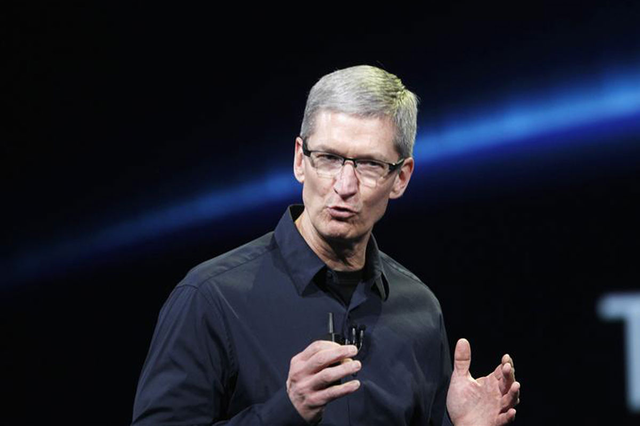
True, it is a little alarming that Tim Cook did not give any specific numbers (and where did they come from?), So evaluate how popular iPhone 6 turned out to be among Android smartphone owners is very difficult. And it is very doubtful that the market share iOS really started to grow. Rather, we can talk about a slowdown in the rate of surrender.
Link to news
Another example is the smart watch Apple Watch. It is not yet clear what exactly they will be, and all the leaks that are available are not so much intriguing as they inspire a certain skepticism. But all the same, this watch is very much waiting. A product that has not yet been released has already been announced by users to be innovative, interesting and extremely successful. Most likely, even if Apple decides to release a full copy of some Galaxy Gear in a slightly modified case, a huge number of users will consider it a real success. The fact that such a product has already been on the market will confuse few, because until there was a logo Apple there, few were interested in it.
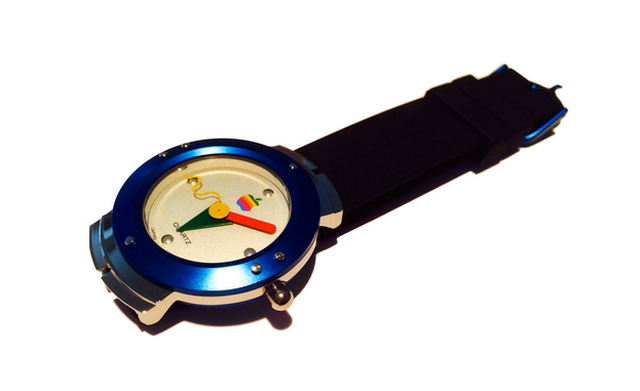
An excellent illustration of this is the news about the sale of miraculously surviving 'ordinary' watches, which the company Apple in 1995 handed out as a kind of souvenir to all those who decided to update the Mac to version 7.5. I don’t think that for modern users of products Apple they were of any interest. But I have no doubt that amid enthusiasm for the upcoming Watch, they will scatter like hot cakes. And they will be bought by not only avid collectors, but also the most ordinary people.
[iframe url = '// www.youtube.com/embed/oUoe89rQp2k' width = '640 ″ height =' 360 ″ scrolling = 'no' frameborder = '0 ″ marginheight =' 0 ″]
Link to news
In terms of the intensity of passions around its products Apple, it has always been head and shoulders above all other companies. But do not forget that every medal has two sides and the fountain of emotions can be either with a plus or minus sign. And there were also enough stupid hysterics around the company's products at all times. It is worth remembering at least the recent panic that began after the video about 'bending' iPhone.
Another horror story that has long been firmly entrenched in the company is spying on its users. In fact, it all depends a lot on the definition of espionage. Any smartphone collects some kind of data about its owner, and I don't think iPhone does that much more than others. Google very quickly found out where I live, what days I work and where my office is located. And also what sites I visit most often, what things I am interested in, what cafes I prefer to go to, and a whole bunch of other things. Yes, formally all this data Google Now collects exclusively for my beloved, but the essence of this does not change a dime.
Apple in this regard, it is worse – exactly the same actions have already become a reason for loud accusations a couple of times and got on the front pages of newspapers. China is especially suspicious in this regard, which has repeatedly tried to accuse Apple of espionage. It got to the point that Tim Cook recently officially announced that he was ready to give Chinese experts a look under the hood iOS and personally make sure of its safety.
Link to news
This issue was almost entirely devoted to 'offtopic' – news Apple and Microsoft. Next week we will return to the usual digest format, and news about Google and Android will again take the honorable first place.

